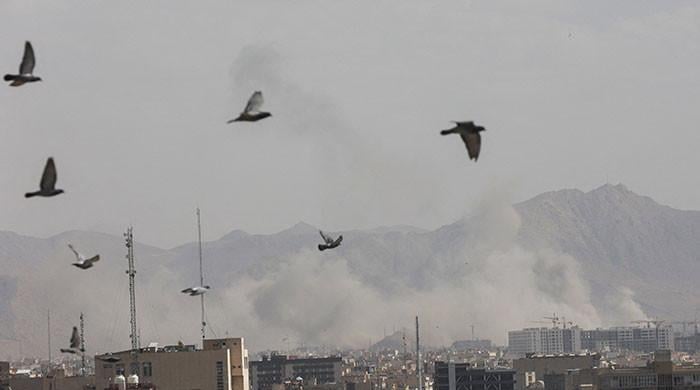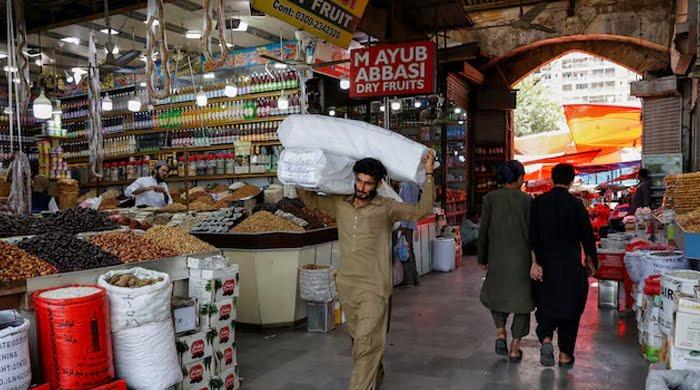Article 184 (3) and the Supreme Court's jurisdiction
Article 184 is an important and powerful mechanism that if exercised judiciously and in a manner that respects the separation of powers, can be used to combat impunity, enhance protection of human...
September 19, 2018
Last week, the Chief Justice of the Supreme Court, Saqib Nisar, informed Anwar Mansoor Khan, the Attorney General, that the Court ‘wishes to examine the scope of its powers with respect to Article 184(3)’ to assess ‘whether or not it is exceeding its jurisdiction with respect to Article 184(3).’
This is a welcome move, especially in light of pressing concerns about the expansive and arbitrary use of the article, which has adversely impacted public perception of the Supreme Court’s independence and integrity, as well as the administration of justice.
Evolution of Article 184(3)
In the constitutional framework of Pakistan, the Supreme Court has three distinct jurisdictions; appellate, advisory and original. Article 184(3) sets out the apex court’s original jurisdiction and enables it to assume jurisdiction of matters involving a question of ‘public importance’ with reference to the ‘enforcement of any of the fundamental rights’ of the citizens.
The Court’s original jurisdiction is unusually broad among highest judiciaries. India accords similar jurisdiction to its Supreme Court, but few other written constitutions provide for such broad powers particularly for the enforcement of human rights. For example, currently in Pakistan ‘any party’ may petition the Supreme Court under Article 184(3), whereas Article 102(1) of the Constitution of Bangladesh and Article 126 of the Constitution of Sri Lanka mandate applications by aggrieved parties only. In addition, the provision also allows the Supreme Court to take suo motu notice of matters of public importance relating to human rights.
For many years, the Supreme Court of Pakistan interpreted and applied its original jurisdiction in a restrictive manner. However, as the Supreme Court of India started challenging the rigid boundaries of its own judicial domain of power in the 1970s and 1980s through public litigation cases, Pakistani courts too started taking a more expansive view of the ambit of its powers under Article 184(3). Since then, it has taken the position that the Court, under Article 184(3), may be moved by any party, regardless of whether the petitioner is personally aggrieved by the violation of law in question. In addition, and particularly in recent years, the Supreme Court has exercised its original jurisdiction, suo motu, in the absence of a petition by any interested party.
As the use of 184(3) was evolving, however, the Supreme Court repeatedly cautioned against the excessive use of the provision, warning that easy access to the highest court should not be used to bypass or undermine the lower courts. The Supreme Court further held that in exercising its powers, courts must not act contrary to judicial norms, in aid of administrative policy or executive authority, or as a “social reformer”.
Concerns about overreach
However, beginning with former Chief Justice Iftikhar Mohammad Chaudhry’s restoration in 2009, and now under current Chief Justice Nisar’s leadership, the Supreme Court has moved away from earlier precedents and has significantly expanded the use of its original jurisdiction.
More controversially, in a number of cases, the Court’s exercise of its ‘fundamental rights jurisdiction’ appears to be inconsistent with the protection and promotion of human rights, and based more on political calculations rather than a bona fide and appropriate (even if expansive) legal interpretation of ‘public importance’ or the identification or clarification of ‘fundamental rights’.
Take, for example, the recent “disqualification” judgments.
Article 62(1)(f) of Pakistan’s constitution provides that no person shall be elected as a member of parliament unless they are “sagacious, righteous and non-profligate, honest and ameen (trustworthy), there being no declaration to the contrary by a court of law.”
The Supreme Court interpreted its 184(3) jurisdiction to include making “declarations” about the “honesty” of a member of parliament under Article 62(1)(f), making them liable for disqualification from their membership as well as being barred from contesting elections for a lifetime. Those disqualified in just the last couple of years through this process include former Prime Minister Nawaz Sharif and a senior leader of the Pakistan Tehreek-e-Insaaf, Jahangir Khan Tareen.
Notwithstanding the fact that the vague and subjective formulation of Article 62(1)(f) fails the doctrine of legality and courts should not be making such moralistic and subjective determinations in the first place, it is important to note that in all these cases, the Supreme Court made a declaration of “dishonesty” against members of parliament without a trial and in the absence of conviction for any crime. Since these declarations have been made in its original jurisdiction, the aggrieved parties are also denied any possibility to appeal the Supreme Court’s findings against them.
The Court’s expansion of its suo motu jurisdiction is also particularly striking in Shahzeb Khan’s murder case. The university student was murdered in Karachi on December 25, 2012. In 2013, the Supreme Court had taken suo motu notice of Shahzeb Khan’s killing and had directed an Anti-Terrorism Court (ATC) to hear the case. In 2017, the Sindh High Court ordered a retrial in the case after finding the facts did not meet the legal threshold of an offence of terrorism and the appropriate court was an ordinary criminal court, not an ATC. Using its 184(3) jurisdiction, the Supreme Court quashed the SHC’s order and held that the lower courts did not have the authority to interfere with the Supreme Court’s characterization of a case as terrorism or its decision about the appropriate forum for trial.
Here the Supreme Court appears to argue that it can determine whether an incident reported in the media is “terrorism” in its original jurisdiction and bar lower courts from deciding otherwise, during trial or in appeal. This raises the concern that the Court is using its 184(3) jurisdiction to bypass or undermine the lower courts and infringe upon the right to a fair trial of defendants.
The need for guidelines
In a 2013 report to the UN Human Rights Council, following a mission to Pakistan, the UN Special Rapporteur on the Independence of Judges and Lawyers, Gabriela Knaul, expressed concern that the “role of the Supreme Court seem[ed] to have become very politically sensitive”, and that the lack of clearly defined criteria to guide the Supreme Court in its decision to take up cases suo motu had resulted in uncertainty and was “difficult to reconcile with the rule of law.”
These concerns echo the findings of a 2013 assessment by the International Commission of Jurists (ICJ) about the Pakistani Supreme Court’s exercise of its original jurisdiction. In its report, the ICJ found that an inappropriate use of the Supreme Court’s 184(3) powers has consequences that in the long run could undermine democracy and rule of law. Some of the concerns highlighted by the ICJ included undermining an accused’s right to a fair trial; denial of the right to an appeal; and the potential for trespass into constitutional powers and roles of other institutions and branches of the State.
Article 184(3) is an important and powerful mechanism that if exercised judiciously and in a manner that respects the separation of powers, can be used to combat impunity, enhance protection of human rights, and advance respect for the rule of law.
However, as Justice Faez Isa noted recently, “before exercising its original jurisdiction the Supreme Court must satisfy itself that the jurisdiction it is assuming accords with the constitution” – something that appears to be lacking in some of the Court’s recent activism.
Omer is a legal adviser for the International Commission of Jurists.
Note: The views expressed are those of the author, and do not necessarily reflect the official policy or position of Geo News or the Jang Group.











